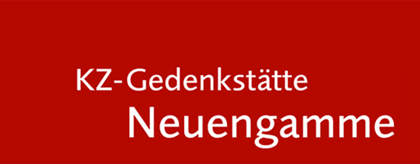12/11/2017 Seasonal Newsletter, Annual Report
Seasonal Newsletter
Seasonal Newsletter to the survivors of the Neuengamme concentration camp, their relatives and friends of the Memorial
Ladies and Gentlemen, dear friends,
Like every year, I would like to use this opportunity to give you an overview of the work we have been doing here at the Neuengamme Concentration Camp Memorial over this past year. As self-centred and right-wing populist tendencies are gaining more and more ground in many democratic countries, it is of particular importance to us to actively teach empathy with the victims of injustice and encourage critical examination of the consequences of tyranny. It is also part of our task to stress the importance of cultural diversity and facilitate international dialogue.
One focal point of our work over the last year has therefore been the intensification of international exchange projects. We also continued our project which facilitates a dialogue between descendants of victims of Nazi persecution and descendants of Nazi perpetrators. On 30 April 2017, second, third and fourth-generation descendants of former prisoners from Belgium, Germany, France, the Netherlands, Poland and Slovenia came together at the Memorial for the Future of Remembrance Forum. During the meeting, they talked about how we could preserve the memory of the Nazi crimes once the survivors are no longer with us to tell their story. The meeting was held to coincide with the celebrations of the 72nd anniversary of the liberation and the end of the war on 3 May 2017. The celebrations were again attended by survivors and their families from many countries including Belarus, Belgium, Denmark, France, Israel, the Netherlands, Norway, Poland, Russia, Sweden, Slovenia, the Czech Republic and Ukraine. The speakers at the event included two survivors, Ivan Moscovich and Joanna Fryczkowka, as well as a representative of the second generation, Yvonne Cossu-Alba. A group of teenagers presented their results from a project entitled “Resistance Against the Nazis and What We Can Learn from it Today” and asked what can be done against injustice and racism today. Essays and reports from this year’s events as well as other accounts of our work are available under “blog” on our website at www.kz-gedenkstaette-neuengamme.de (see also Facebook or Twitter)
The website also contains a report from this year’s International Youth Workcamp. Last summer, participants from Germany, Italy, Poland, Portugal, Spain, the Czech Republic and Ukraine discussed the experiences of the descendants of Nazi perpetrators and those of victims of Nazi persecution and talked about the memorial cultures in different countries.
In our annual exhibition presented at Hamburg City Hall with the support of the Hamburg Parliament, our archivists Alyn Beßmann and Reimer Möller showed that bringing Nazi perpetrators to justice was an important goal of the Allied states. The Curiohaus in Hamburg’s Rothenbaum district was the most important location for war crimes trials in the British Zone. 504 defendants were tried in 188 trials by military tribunals there. An extensive programme of events accompanied the exhibition, and the Centre for Historical Studies organised a conference on current research into the prosecution of Nazi crimes by the British military judiciary.
On 10 May 2017, the Mayor of Hamburg, Olaf Scholz, inaugurated the Hannoverscher Bahnhof Memorial in Hamburg’s new HafenCity district. This memorial commemorates the deportation of Jews as well as Sinti and Roma from Hamburg. The ceremony was attended by the last few survivors of these deportations as well as representatives of Jewish, Roma and Sinti associations. We are currently planning an exhibition for the new documentation centre at the memorial, which will aim to also highlight the international dimension of Nazi crimes. This is also the aim of our project “Transgenerational Transmission of History: Building Blocks for a Future Remembrance of Nazism in a Migration Society”.
Our publications this year included a revised edition of the compilation volume “Withdrawal of Rights, Resistance, Deportation 1933 – 1945 and the Future of Remembrance in Hamburg”, the exhibition catalogue “The Curiohaus Trials in Hamburg. Nazi Crimes before British Military Tribunals”, as well as the volume “Reprisals and Terror. Retaliatory measures in German-occupied Europe 1939-1945”, edited by Oliver von Wrochem. The latter contains contributions from researchers from many different countries and continues a theme we started with our annual exhibition at City Hall in 2015.
Unfortunately, we also had to say goodbye to a number of Neuengamme survivors who were of special importance for our work. I would like to particularly mention Henryk Francuz, born in Łódź, Karla Raveh, née Frenkel, from Lemgo and Zuzana Růžičková from Pilsen. They stand for all the others I cannot mention here.
More than 100,000 visited the Memorial in 2017. We conducted a visitor survey this summer to find out what brought people to the Memorial and which impressions they took with them. The survey again showed us how diverse our visitors are, that they come from many different countries and how important it is to many people that the concentration camp memorials continue to exist as sites of commemoration and learning, and that they can carry on their work into the future.
I would like to thank you all for the great support you gave us here at the Memorial this past year. On behalf of everyone here at the Neuengamme Memorial, I would like to wish you Happy Holidays and all the best for the New Year, especially peace and good health.
Sincerely,
Detlef Garbe

